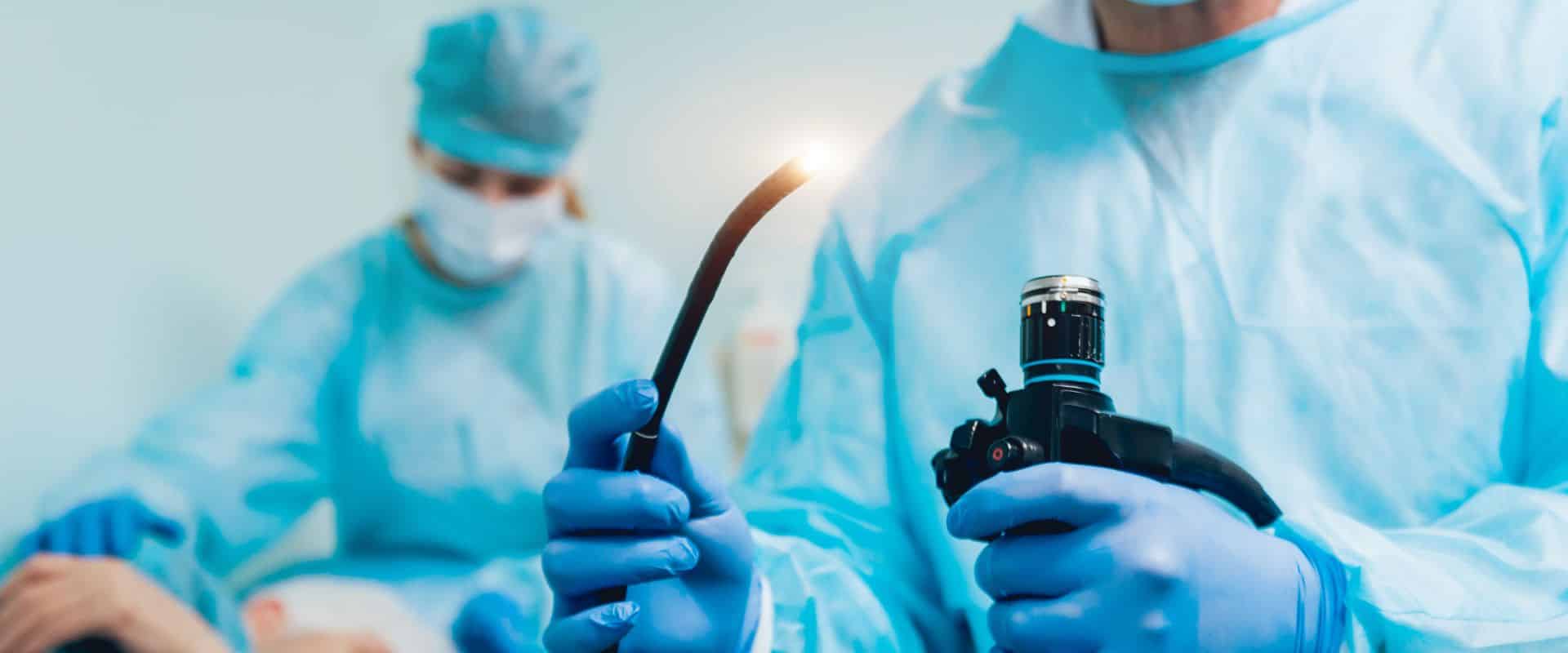Many Australians experience digestive conditions such as reflux, ulcers, and bowel disorders at some point. Endoscopy procedures are a valuable tool to diagnose and monitor these conditions by providing doctors with a clear view of the gastrointestinal (GI) system. By enabling earlier identification of concerns like inflammation or polyps, endoscopy plays a crucial role in delivering better health outcomes.
Digestive symptoms that may initially seem mild can point to more complex health issues if left unchecked. Through endoscopy, healthcare providers can gather precise information to guide further treatment and care.
What is an endoscopy?
Endoscopy is a medical procedure that allows a direct visual examination of the digestive tract using a thin, flexible tube equipped with a light and camera. This non-invasive procedure helps doctors diagnose a wide range of digestive issues without the need for major surgery.
Types of endoscopic procedures
Different types of endoscopy are available to target specific areas within the gastrointestinal system:
- Gastroscopy: Examines the oesophagus, stomach, and upper small intestine, often used to investigate persistent heartburn, ulcers, or unexplained nausea
- Colonoscopy: Focuses on the large intestine and rectum, typically used for cancer screening and to remove polyps before they become cancerous
- Endoscopic retrograde cholangiopancreatography (ERCP): Combines endoscopy with X-ray technology to diagnose issues in the bile ducts, liver, and pancreas
Why is endoscopy important for digestive health?
Digestive conditions affect over one-third of Australians at some point in their lives. In many cases, endoscopic procedures provide detailed information on these disorders that other diagnostic tools, such as X-rays or CT scans, may not reveal. By offering a clear internal view, they help diagnose, monitor, and sometimes even treat digestive conditions, like bowel cancer which is the second leading cause of cancer-related deaths in Australia.
What conditions can endoscopy procedures diagnose?
Gastro-oesophageal reflux disease (GORD)
Chronic acid reflux, also known as GORD, can cause severe discomfort and damage to the oesophagus if left untreated. Gastroscopy allows doctors to assess the extent of any damage and monitor for complications, such as Barrett’s oesophagus, which can increase cancer risks.
Inflammatory bowel disease (IBD)
Endoscopy plays an essential role in diagnosing and monitoring inflammatory bowel disease conditions and symptoms like ulcerative colitis and Crohn’s disease. With repeated endoscopy procedures, doctors can track inflammation levels and adjust medications accordingly.
Polyps and colorectal cancer screening
Colonoscopy is an important tool in Australia’s bowel cancer screening programme. Detecting and removing polyps during a colonoscopy may prevent these growths from possibly developing into colorectal cancer, contributing to improved long-term health outcomes for patients.
How do endoscopic procedures work?
Gastroenterologists offer a range of diagnostic tools, treatment options, and preventive care strategies to help patients manage digestive disorders effectively. Here’s a closer look at how they can assist:
How to prepare for your endoscopy
Proper preparation helps ensure the best results. Depending on the procedure, patients may need to:
- Fast for several hours before the exam
- Follow a liquid-only diet for 24 hours
- Take laxatives or other bowel cleansers
our healthcare provider will give you specific instructions to follow, ensuring the procedure goes smoothly.
What to expect during the procedure
- Sedation: Most endoscopic procedures involve light sedation to keep you comfortable and relaxed
- Procedure time: Gastroscopy typically takes 15-20 minutes, while colonoscopy can take up to an hour
- Real-time imaging: Doctors view the digestive tract and may take tissue samples for further analysis
Endoscopic procedures are generally safe, with a low risk of complications. Healthcare providers carefully monitor patients throughout the process to ensure their safety and comfort. Most patients can resume normal activities within a few hours after the procedure.
Post-procedure care and recovery
Immediate recovery
After the procedure, patients usually spend time in a recovery area until the sedation wears off. Some mild side effects, like bloating or a sore throat, are common but tend to resolve quickly without any complications.
Importance of follow-up
It’s essential to schedule follow-up appointments to review the findings and discuss any necessary treatment. Additional tests or repeat endoscopy procedures may be required to monitor progress or address new concerns.
When should you consider endoscopy?
Certain symptoms should not be ignored, as they may indicate underlying digestive issues. It’s important to consult with a healthcare provider if you experience any of the following:
Persistent abdominal pain or bloating
Chronic heartburn or acid reflux
Difficulty swallowing food and drink
Blood in stools or black, tarry stools
Sudden and unexplained weight loss
By undergoing an endoscopy, patients and healthcare providers can better understand these symptoms and take appropriate steps toward treatment.
FAQs

Most people experience minimal discomfort during an endoscopy, thanks to sedation. Any mild side effects, such as bloating or throat irritation, typically resolve within a few hours.
Your doctor will advise how frequently you should have a colonoscopy based on your medical history and risk factors. For most people, screening starts at age 50, but those with a family history of bowel cancer may need earlier or more frequent tests.
If sedation is used, it is recommended to arrange for someone to drive you home, as the effects of sedation may impair your ability to drive for several hours. Patients are usually advised to rest for the remainder of the day.
Discover the benefits of endoscopy for digestive health
If persistent digestive symptoms like bloating, abdominal discomfort, or trouble swallowing have been affecting your daily life, it may be time to dig deeper. An endoscopy is a safe, reliable procedure that allows your doctor to thoroughly examine your digestive tract. This close-up view helps detect conditions such as GORD, ulcers, and other gastrointestinal issues, giving you the insights needed to begin effective treatment.
There’s no need to endure discomfort any longer. An endoscopic investigation can provide the answers you need to regain control of your health and well-being. Take the first step toward relief by scheduling an appointment with a trusted Sydney specialist today.
